With the right organization of transistors and logic circuits, almost anything can be done! Or is it not?
Modern processors are a work of technological art, behind which are many tens, if not hundreds of years of fundamental research. And this is one of the most high-tech devices in the history of mankind! We have already talked about them more than once, remember at least the process of their creation!
Processors are constantly evolving, capacities are growing, the amount of data is increasing, modern data centers handle hundreds of petabytes of data (10 to the 15th power = 1,000,000,000,000,000 bytes). But what if I said that in fact all our computers are not omnipotent at all!
For example, if we are talking about BigData (big data), then ordinary computers can take years, or even thousands of years to process the data, calculate the desired option and produce the result.
And this is where quantum computers come into play. But what are quantum computers really? How are they different from ordinary ones? Are they really that powerful? Will CS: GO go to 100 thousand FPS on them?
A small start - we'll tell you how any of you can try using a quantum computer today!
Make yourself comfortable, pour tea, it will be interesting.
Chapter 1. Why are ordinary computers so bad?
Let's start with a very simple classic example.
Let's say you have the most powerful supercomputer in the world. This is Fugaku's computer. Its performance is 415 PetaFlops.
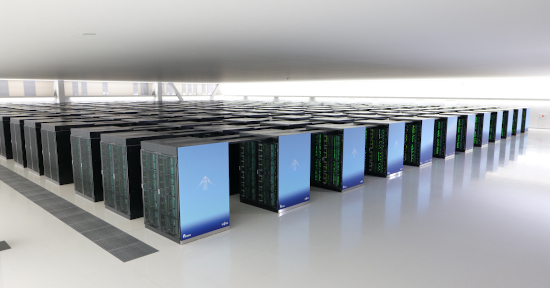
Let's give him the following problem: we need to distribute three people in two taxi cars. How many options do we have? It is easy to understand that there are 8 such options, that is, it is 2 * 2 * 2 or 2 to the third degree.
How quickly will our supercomputer handle this task? Instantly! The task is elementary.
Now let's take 25 people and put them in two luxurious limousines, we get 2 to the 25th degree, or 33,554,432 options. Believe me, this number is also a trifling matter for our supercomputer.
And now 100 people and 2 buses, how many options?
Consider: 2 to the 100th power is approximately 1.27 x 1030 or 1,267,650,600,228,229,401,496,703,205,376 options.
Now our supercomputer will need about 4.6 * 10 ^ + 35 (4.6 x 10 to the 35th power) years to sort through all the options. And this is already very, very much. This calculation will take longer than the total lives of hundreds of universes.
The total lives of our universe: 14 billion years, or 14 by 10 to the 9th power.
Even if we unite all computers in the world for the sake of solving a seemingly simple problem like seating 100 people in 2 buses - we will get a solution, almost never!
And what? Everything? No exit?
Yes, because quantum computers will be able to solve this problem in seconds!
And believe me - they will not be used at all for seating 100 people in 2 buses!
Chapter 2. Comparison. Bits and Qubits
Let's see what the fundamental difference is.
We know that a classical processor consists of transistors and they can pass or not pass current, that is, be in a state of 1 or 0 - this is the BIT of information. By the way, I recommend watching our video on how processors work.
Let's go back to our example with two taxis and three people. Each person can be either in one or in another machine - 1 or 0.

Here are all the states:
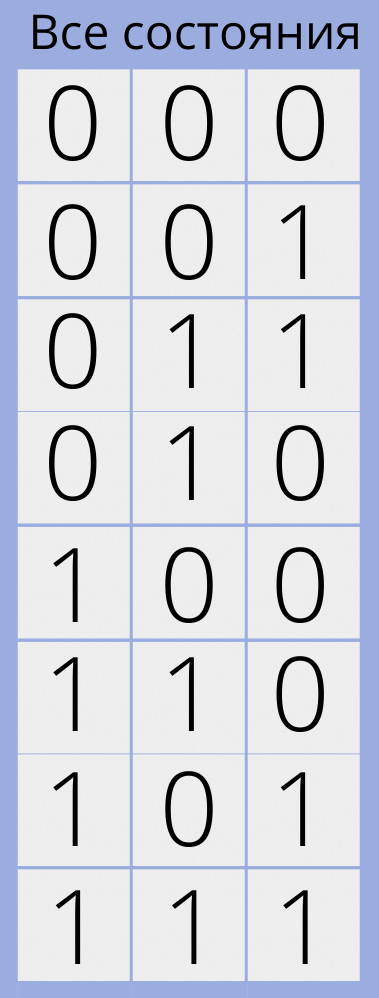
To solve the processor, it is necessary to go through absolutely all the options one by one and select those that fit the given conditions.
Bits are also used in quantum computers, only quantum ones, and they are fundamentally different from ordinary transistors.
They are called Quantum Bits, or Qubits.
What are qubits?
Qubits are special quantum objects, so small that they already obey the laws of the quantum world. Their main property is that they are capable of being simultaneously in 2 states, that is, in a special state - superposition.
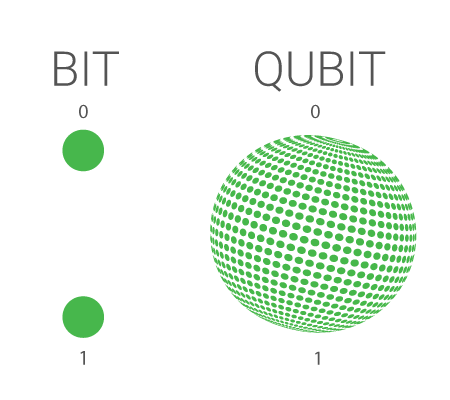
In fact, this is the fundamental difference between qubits and ordinary bits, which can only be 1 or 0.
Superposition is amazing. Consider that qubits are both an open and closed door, or a burning and not burning light bulb ....
In our case, they are both 1 and 0!
But quantum mechanics tells us that a quantum object, that is, a qubit, is in superposition until you measure it. Remember a coin - this is a perfect example of superposition - while it is in the air it is both heads and tails, but as soon as I catch it - that's it: either heads or tails! The condition was determined.
We need to understand that these qubits and their behavior are not chosen by chance - these quantum systems are very strictly defined and their behavior is known. They obey the laws of quantum mechanics!
Quantum computer inside
Speaking of the device itself, if we are used to semiconductors and silicon in ordinary processors, then in the case of quantum computers, people are still looking for which quantum objects are best used to make them act as qubits. Now there are a lot of options - it can be electrons with their own spin or, for example, photons and their polarization. There are many options.
And this is far from the only difficulty faced by scientists! The point is that quantum qubits are quite unstable and must be kept in a cool place to be controlled.
And if you think that the water cooling of your system unit will be enough for this, you are partly right, only if you fill it with liquid Helium, the temperature of which is below minus two hundred and seventy degrees Celsius! And to obtain it, such healthy barrels are used.
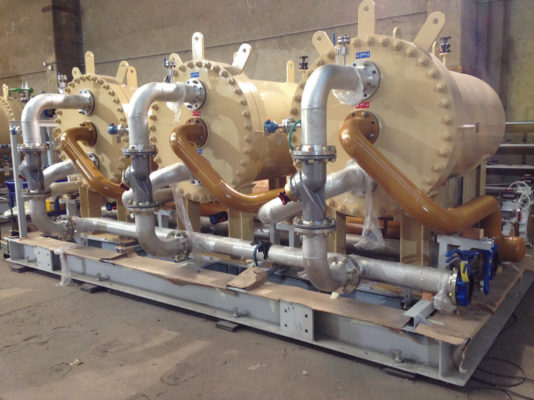
In fact, quantum computers are some of the coldest places in the universe!
How a quantum computer works
Let's go back to our problem about three people and two machines and consider it from the point of view of a quantum computer:
To solve such a system, we need a computer with 3 qubits.
Remember that the classic computer had to go through all the options one by one? So since qubits have states "1" and "0" at the same time, he will be able to go through all the options, in fact, simultaneously!
I know it will sound as strange as possible, but imagine that in this situation, our three qubits create 8 different parallel worlds, in each of which there is one solution, and then they all gather into one! Really "Avengers" some!
But what happens? He gives all the options at once, but how to get the correct one?

There are special mathematical operators for this, such as the Groover operator, which allows us to determine the correct results of calculations of quantum systems! This is a special function that, among all possible options, finds the one we need.
Remember the puzzle about 100 people in 2 buses, which all modern computers together could not solve? For a quantum computer with 100 qubits, this problem is like clicking a seed! That is, the computer is simultaneously in 2 to the 100th power of states, namely:
1,267,650,600,228,229,401,496,703,205,376 - that's how many states at the same time! So many parallel worlds!
Do you think this all sounds too good to be true? Yes you are right. There are a lot of nuances and limitations. For example, an error. The problem is that qubits, unlike normal bits, are not strictly defined.
They have a certain probability of being in state 1 or 0. Therefore, there is a probability of error, and the more qubits in the system, the greater the total probability that the system will give an incorrect answer. Therefore, it is often necessary to carry out several calculations of the same problem in order to get the correct answer.
Well, that is, how faithful? It will always contain a minimal possibility of error due to its complex quantum nature, but it can be made negligible by simply running the computation many times!
Quantum computers today
Now let's move on to the most interesting - what is the state of the quantum computer now? And then they are somehow not observed on store shelves!
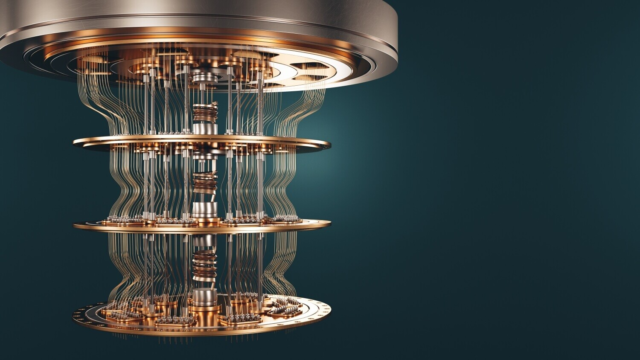
In fact, everything that I described above is not so fantastic. Quantum computers are already among us and are already working. They are developed by GOOGLE, IBM, INTEL, MICROSOFT and other smaller companies. In addition, every large institute has research groups that develop and research quantum computers.
[caption id = "attachment_148510" align = "aligncenter" width = "640"]
 Sundar Pichai and Daniel Sank with Google quantum computer. October 2019 [/ caption]
Sundar Pichai and Daniel Sank with Google quantum computer. October 2019 [/ caption]
Last October, Google published an article in Nature magazine that hit the world with huge headlines - QUANTUM EXCELLENCE!
Google created a quantum computer with 53 qubits and was able to solve a problem in 200 seconds, which would take a conventional computer 10,000 years to solve!
Of course, IBM was very offended and they began to say that the task was too special, and generally not 10,000 years, but 2.5 days, but the fact remains - quantum superiority has been achieved to a certain extent!
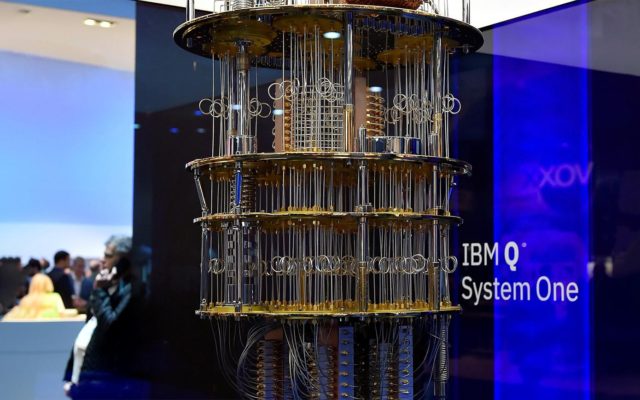
So now the question is, in a matter of years, when quantum computers will begin to be used everywhere! IBM, for example, just announced that they will build a commercial quantum computer with 1,121 qubits in 2023!
For you to understand, the Google calculator does not even count how much 2 will be to the 1121 power, but simply says - infinity! And this is not the limit at all.

The development of computers for millions of qubits is already underway - they will reveal the true potential of quantum computing.
Moreover, you can try quantum computing yourself now! IBM offers cloud-based access to the most advanced quantum computers. You can explore, develop, and run programs using the IBM Quantum Experience .
But why do we need quantum computers at all and where will they be used?
Naturally, not for shoving people on buses.
There are many tasks. The main thing is databases and search through them, working with BigData will become incredibly fast. Shazam, routing, neural networks, artificial intelligence will all get an incredible boost! Moreover, simulate and simulate quantum systems! Why is this necessary - you ask?
This is very important, since it will be possible to build models of the interaction of complex protein compounds.
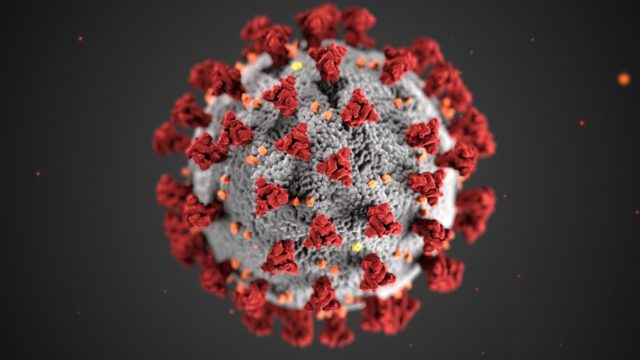
This will be a very important step for medicine, opening simply mind-boggling scope for creating future drugs, understanding how different viruses affect us, and so on. The space is huge!
To give you a rough idea of how difficult it is, we'll return to the coin example. Imagine that you need to model in advance what comes up - heads or tails.
It is necessary to take into account the force of the throw, air density, temperature and a bunch of other factors. Complicated? Well, not so!
Now imagine that you have not one person throwing a coin, but a million different people, in different places, throwing coins in different ways. And you need to calculate what everyone will get! That's about how complex this model of protein interactions is.
Plus, you've probably heard that quantum computers will make our passwords a breeze that you can guess in seconds. But this is a completely different topic ...
Conclusion
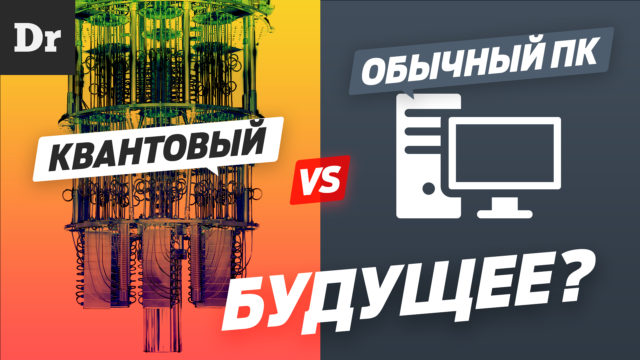
What conclusion can we draw from all this, a quantum computer is a fundamentally new system. It differs from ordinary computers in the very foundation on which it operates.
They really can't even be compared! It's like comparing abacus and modern computers!
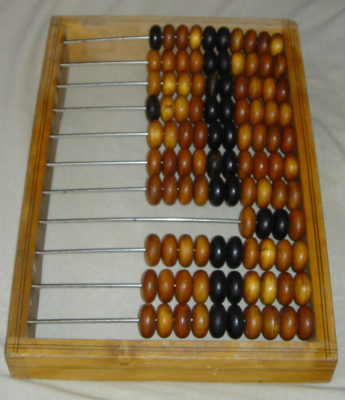
And of course, there are big doubts that you will ever be able to come to the store and buy your little quantum processor. But you don't need them. For an ordinary user, quantum computers will become like modern data centers, that is, our invisible assistants who are located far away and who simply make our life better or at least different!